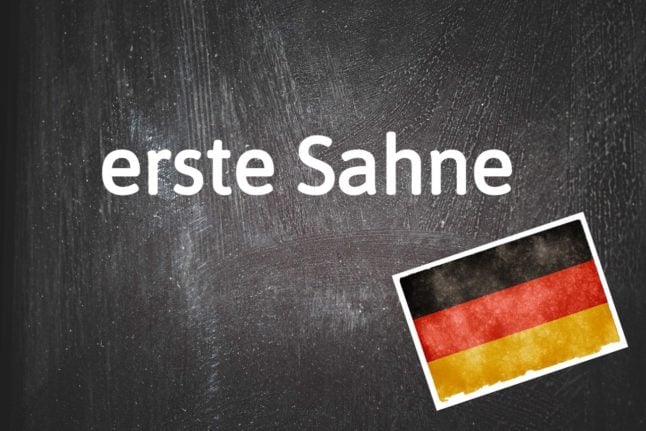Why do I need to know erste Sahne?
Because it’s nice to give a positive compliment like this, especially if your friend cooks you a great meal or your partner gives you a cool present.
What does it mean?
Erste Sahne literally translates to “first cream”. But it actually means that something is “top notch”, “top class” or “the bee’s knees”.
In German it is used with the verb to be (sein). So the full phrase is erste Sahne sein.
If something is the first cream then it is outstanding or of the highest quality.
The origin of the term is likely related to the use of cream in cooking, which was a bit of luxury back in the day. Adding cream to your meal was the hallmark of quality.
German synonyms that you could also use in place of erste Sahne include: prima, hervorragend (outstanding), bestens (best), ausgezeichnet (excellent), super, Spitzenklasse (top class) or klasse sein (to be classy).
Thanks to its catchiness, a number of businesses – including catering companies – are called “Erste Sahne” – so you may see this name while out and about.
How to use it:
Dein selbst zubereitetes Essen ist immer erste Sahne.
Your home-cooked food is always first class.
Der Service hier ist doch erste Sahne, oder etwa nicht?
The service here is really top notch, isn’t it?



 Please whitelist us to continue reading.
Please whitelist us to continue reading.
Member comments